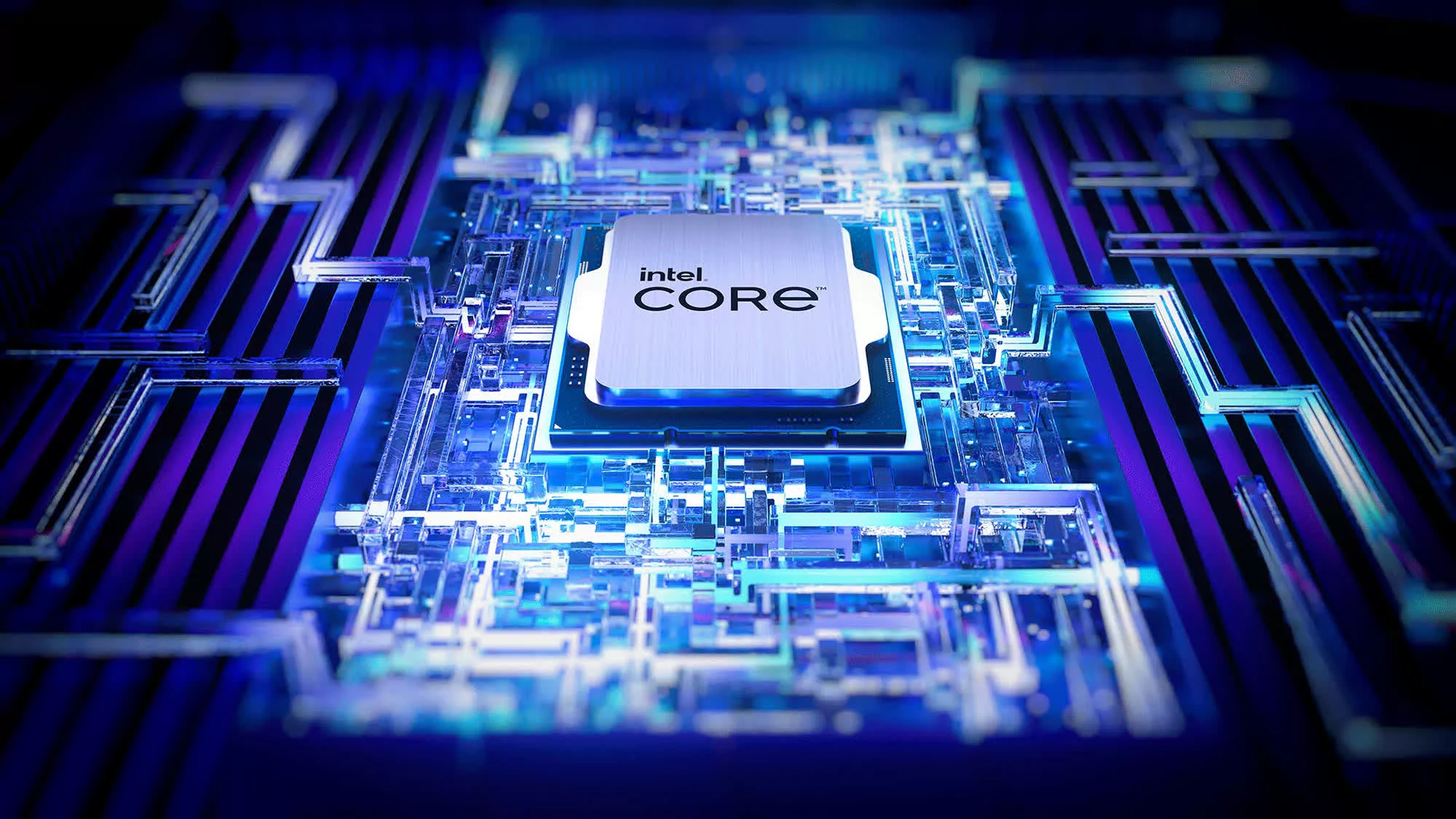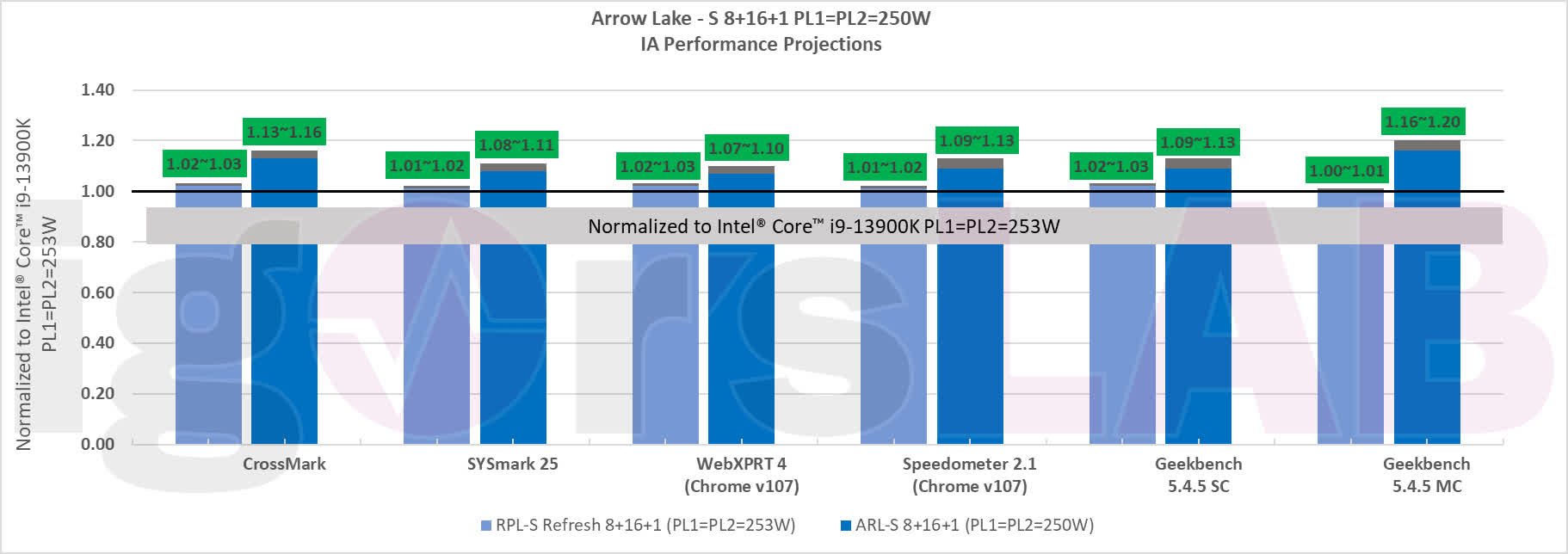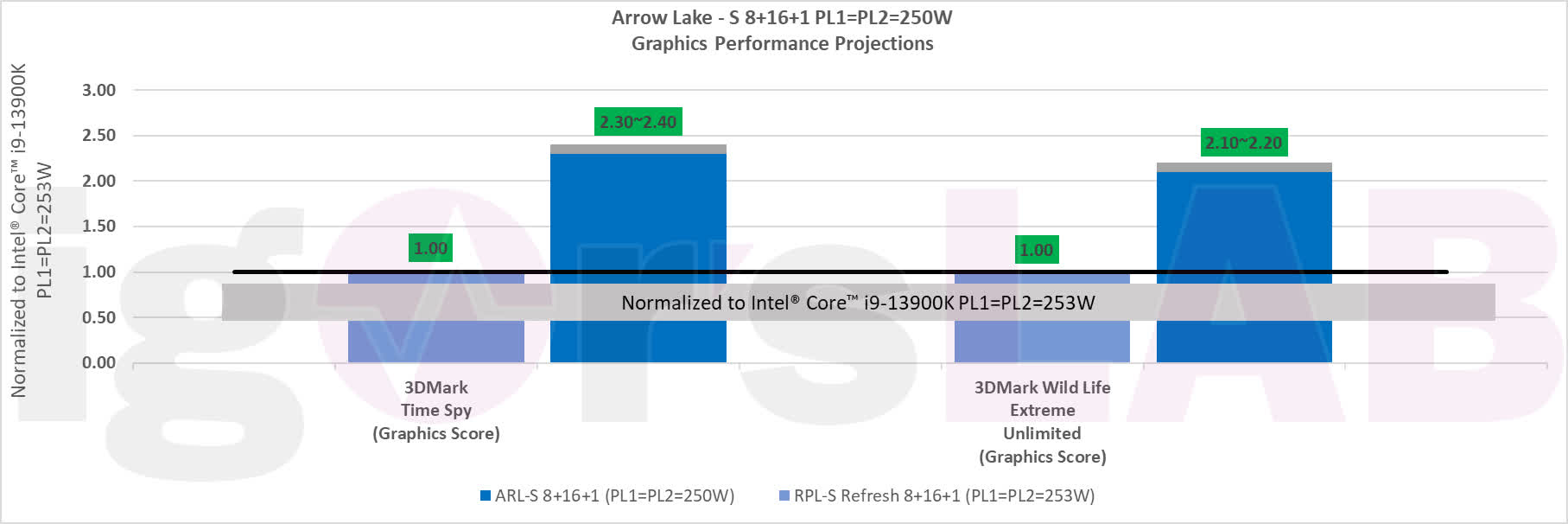In brief: New leaks have revealed that Intel's 15th-gen Arrow Lake chips show promising improvements in CPU performance over their 13th-gen counterparts. There's also an expected uplift in iGPU performance of over 200% in 3DMark when compared to the current Core i9-13900K flagship.

Even though we're nearly a year away from launch, leaks have emerged showing Arrow Lake's performance advancements over current-gen options. Thanks to Igor's Lab, we can start establishing our expectations for the upcoming Intel processors. The results suggest that the 15th-gen Core chips might pose a significant challenge to AMD in terms of performance.
Courtesy of Igor's Lab
In the leaked benchmarks, the top-end Intel Arrow Lake CPU seems to pack a substantial performance uplift of about 20% over the Core i9-13900K in multi-core benchmarks such as Geekbench. Conversely, the 14th-gen scores are rather disappointing to say the least, being only about 1-3 % faster than the current 13th-gen parts. As for single-core performance, we can expect up to 17% improvement for the Arrow Lake chips over the current Raptor Lake CPUs in specific tests.
While the figures for Intel's 14th gen are not impressive, those CPUs still maintain compatibility with the LGA1700 socket used for the 12th- and 13th-gen processors. However, Arrow Lake will use a brand-new LGA1851 socket when it comes out in 2024. Given the leaks, holding on and upgrading straight to 15th gen looks far more lucrative than upgrading to 14th gen.
Courtesy of Igor's Lab
The biggest surprise lies in the graphics department, where the 15th-gen iGPU exhibits an extraordinary improvement of up to 240% over the current 13th-gen offerings in the 3DMark TimeSpy benchmark and a surge of up to 220% in the WildLife Extreme tests.
These figures are incredibly promising, particularly considering that AMD has traditionally led in iGPU performance. Team Red's historical dominance in iGPUs is why most handheld gaming consoles employ AMD APUs, but given these leaks, AMD might be facing a serious threat from Intel in the near future. This is good news for Intel enthusiasts as well as general consumers, as increased competition encourages companies to strive harder to outdo their rivals, ultimately benefiting the end user.
https://www.techspot.com/news/99470-leaked-benchmarks-reveal-major-performance-leaps-intel-15th.html


